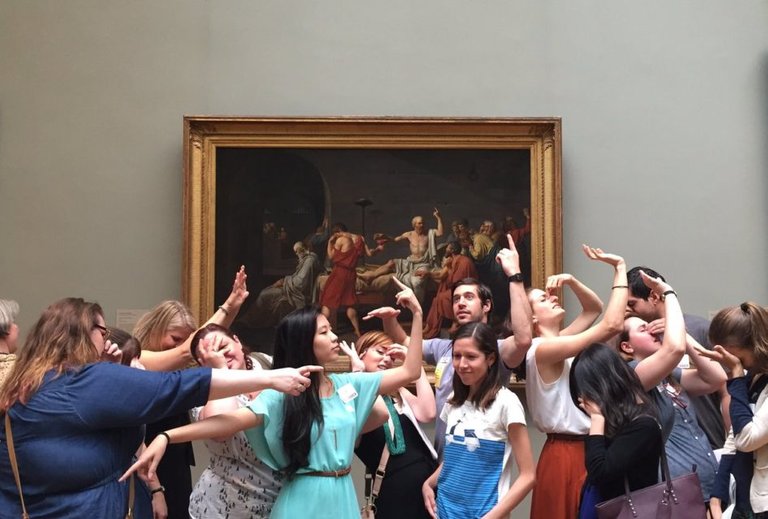
Picture from https://museumhack.com/june-2016-boot-camp/
Obviously, traditional institutions like museums and art institutes are catering to audience in this era. Different from old time that there were limited choices for people to spend their leisure time, now they can travel further, satisfied multiple needs and enjoy themselves closer thanks to the technology innovations and culture subdivision. To keep them alive and keep the audience, traditional institutes have to bow down to have better connection with the potential audience, and find pleasing ways to reach audience. In a word, the states of institute and audience has been changing.
The change of states of institutions and audience adds the institutes commercial attribute, like measurement and marketing, though those institutes would be unhappy to hear that. They need to track audience use in detail to find out audience preference, which sets direction to built new services that facilitate audience. The introductive videos about exhibits and interactive technology seems to be the long-term capability, while short-term projects like feature exhibitions seem to cannot bring permanent effect. The right direction for museum to approach the audience hides in the main value and its social functions.
When considering the attribute of museum and art institutes, the head of its “long tail” is the historical items and art form they own. Take museum for instance, if people think that there’s no difference seeing historical items by online pictures or physically go into museum to witness the original piece, museum loses its charm. However, the aura of the original items could not be replaced by mechanical reproductions or online pictures. The public identification of “aura” is what museums should try to build. It’s also recognizable that well-known art pieces have natural appeal to audience, needless of the loose “decoration” around them. In that case, public education of the artworks knowledge need to be promoted.
100% of the SBD rewards from this #explore1918 post will support the Philadelphia History Initiative @phillyhistory. This crypto-experiment conducted by graduate courses at Temple University's Center for Public History and MLA Program, is exploring history and empowering education. Click here to learn more.